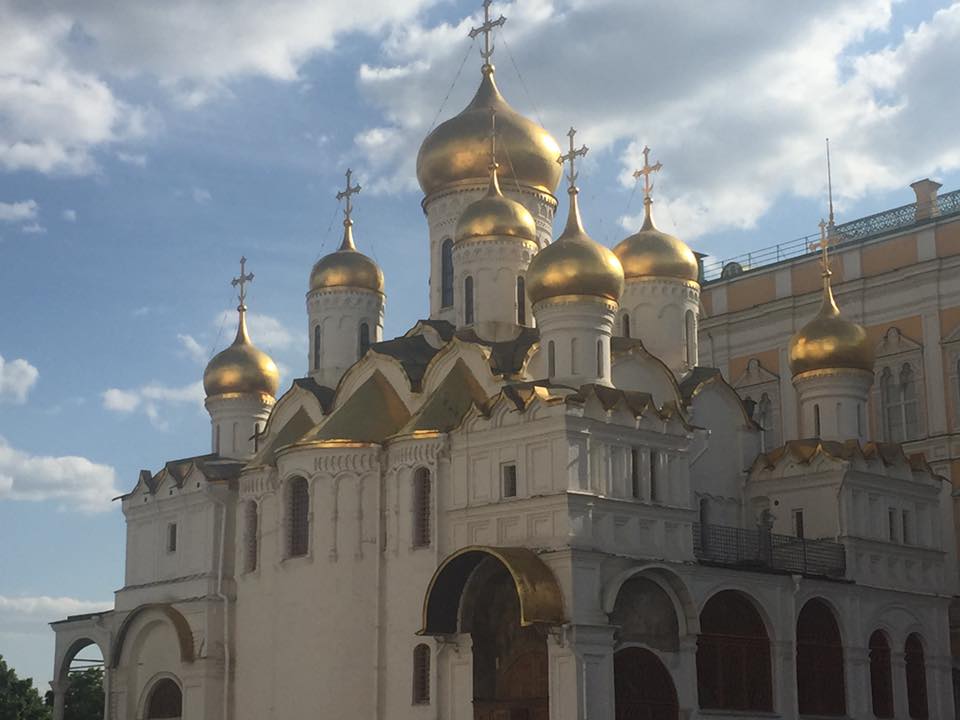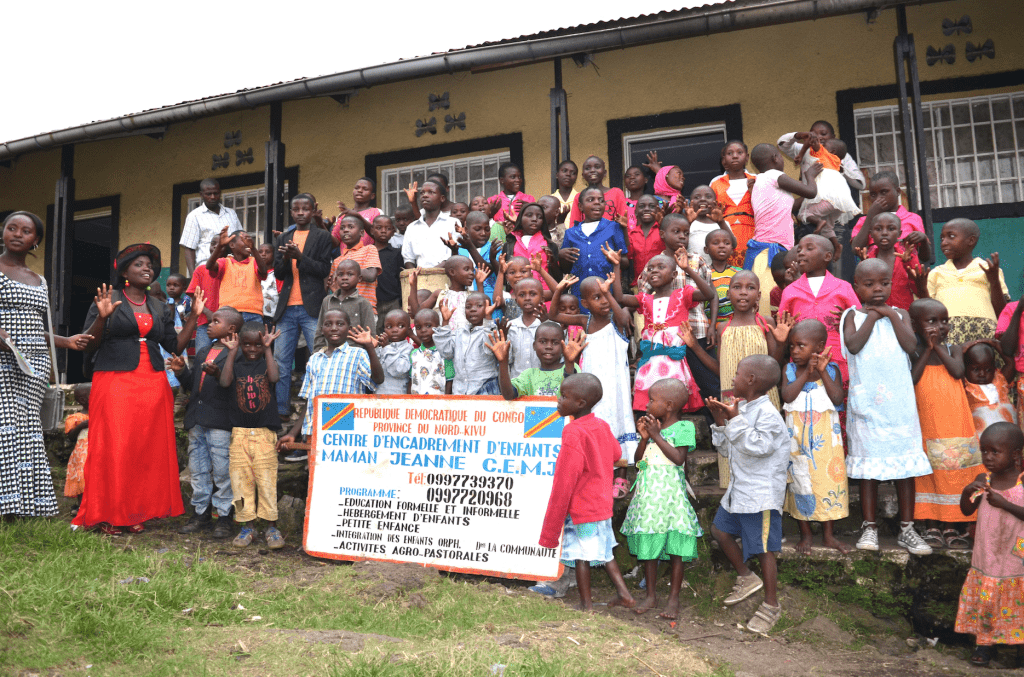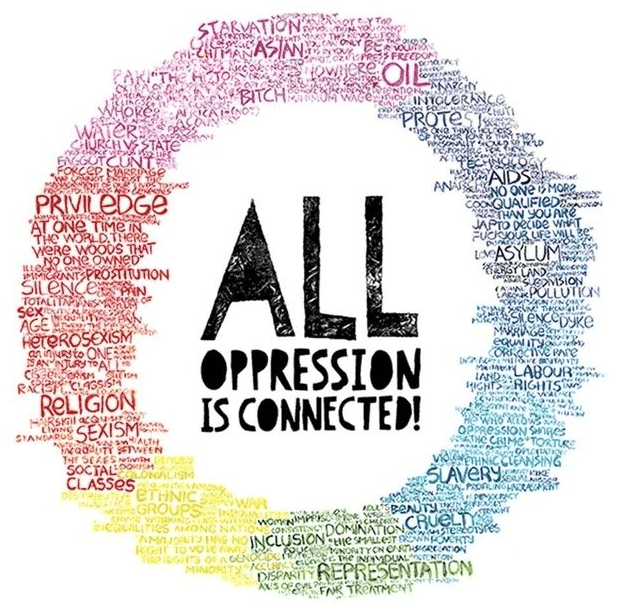
I was in Russia when the first sanctions against her were announced about two years ago, and looking back today, it’s far from clear those sanctions have “worked” in the way they were intended.
Russia is still involved in Ukraine’s civil war because Ukraine has always been within Russia’s traditional sphere of influence, and Ukraine is a partner Russia cannot lose. This is a reality the West, led by the U.S., has mostly ignored as inconvenient or irrelevant, despite the fact that we have regularly intervened in the affairs of countries we are far less tied to historically, culturally, and economically than Russia is to Ukraine. Recreating Eastern Europe in our image has been the triumphant attitude of the West since perestroika, glasnost, and the disintegration of the USSR, and it has been carried out with no room for compromise and little to no regard for the social and economic infrastructure of the region.
As far as I’m concerned, the unacknowledged matter of identity is a driving force behind the encroaching posture of both the West and Russia (thought the latter’s has been mostly reactionary). If we want to find a way forward, not only in Ukraine, but also in Syria and in future conflicts where cooperation will be necessary, we should begin by acknowledging that those identities exist, and that they inform the actions not only of policy-makers, but also ordinary people who live them out and never question their superiority, and therefore the policies of their leaders
On my second trip to Moscow and central Russia, I was coping with little knowledge of the Russian language, so in-depth conversations were difficult to come by, but the unspoken tension was nevertheless palpable. In contrast to the visit I made just one year earlier, where the warmth and hospitality of the Muscovites instantly shattered any preconceived notions I harbored, this journey was markedly different. The tension I felt came down to the dozens of smaller interactions at the bus stop or McDonalds checkout line; interactions that instantly became a bit cooler or, conversely, more urgent once my conversation partner realized I was an American.
___________________________________________
Recreating Eastern Europe in our image has been the triumphant attitude of the West since the disintegration of the USSR, and it has been carried out with little to no regard for the social and economic infrastructure of the region.
___________________________________________
Punctuated by outbursts about Putin or Obama, accompanied by requests for my thumbs to go up or down in response to each name, their talking points were few but serious: what happened in Ukraine was a coup, therefore illegal; the new government in Kiev is waging a war against its own citizens in the east; Russia has no choice but to provide aid. (Did I not understand the ethnic and religious ties that bind the Orthodox Christian peoples of Russia and Ukraine, the sense that economics had merely replaced “Cold War” pressure? Did I not see how the U.S. security and surveillance footprint is everywhere, making the world safe for an invasive consumerism and new forms of exploitation?)

I met two young university students in the city of Penza who didn’t have much to say about their President because, in their words, they didn’t have much interest in politics. However, when I asked them about Ukraine specifically, their smiles faded and they said: “What is happening there is cruel. And we must help.” To them, Russian involvement in Eastern Ukraine was the only logical and compassionate response to an unraveling humanitarian crisis.
Their pronouncements, while accurate in their portrayal of the violence perpetrated by Kiev in the east of Ukraine, didn’t change my opinion about Russia’s aggressive foreign policy and illegal annexation of Crimea. What they did do was reinforce the fact that our perspectives were being shaped by very different narratives, sources, and collective memories. It was “plain and simple,” to all of us, which usually reveals that the issue at hand is anything but.
Indeed, as I returned home and tried to reconcile two deeply entrenched though opposite views on Russia’s response to the Maidan protests in Ukraine, I found that genuine conversation partners in the U.S. were almost impossible to find. I also found that one had to dig deeper than the mainstream media to find any analysis of real substance. Russia was not the only country whose citizens were being shaped by a shallow press or forming knee-jerk reactions within an old Cold War framework. Was President Obama’s State Department not replaying our own old imperial tapes, determined to break up any power bloc other than ours?
___________________________________________
Russia was not the only country whose citizens were being shaped by a shallow press or forming knee-jerk reactions within an old Cold War framework.
___________________________________________
Enter Michael Vlahos, a writer and Professor in the Strategy and Policy Department at the U.S. Naval War College. In an article published on Huffington Post in the spring of 2014, he contends that what is happening in Russia is nothing less than a long awaited Renovatio, or restoration, after the disintegration of the USSR and the mess that was left to clean up. Accompanied by just a handful of other scholars and writers who have dared to explain Russia’s policy in any way other than vilifying President Putin (hardly a helpful “policy”), Vlahos reminds us that post-Soviet Russia hasn’t been a picnic, and contrary to a narrative that insists they heaped ruin on themselves, the way the U.S. treated post-Soviet Russia was “thoughtless” and even “cruel.” “Put simply,” he says, “the U.S. treated Russia after 1991 exactly like the allies treated a defeated Germany after 1919, during and after the Versailles Conference.”
 At least on this note, he echoes NYU’s Russian Studies professor Stephen Cohen, whose book Failed Crusade: America and the Tragedy of Post-Communist Russia is hauntingly accurate in predicting the chain of events that have befallen Russia in recent years, events that have significantly contributed to a climate that leads many to conclude we’re in a new cold war. Cohen chronicles Russia’s (unfulfilled) transition from the Soviet system to one that apparently became democratically free and capitalist, contending that the shock therapy policies advocated by the U.S. and embraced by President Boris Yeltsin had little regard for the masses of ordinary Russians who quite suddenly and protractedly found themselves in “the worst peacetime industrial depression of the twentieth century.”
At least on this note, he echoes NYU’s Russian Studies professor Stephen Cohen, whose book Failed Crusade: America and the Tragedy of Post-Communist Russia is hauntingly accurate in predicting the chain of events that have befallen Russia in recent years, events that have significantly contributed to a climate that leads many to conclude we’re in a new cold war. Cohen chronicles Russia’s (unfulfilled) transition from the Soviet system to one that apparently became democratically free and capitalist, contending that the shock therapy policies advocated by the U.S. and embraced by President Boris Yeltsin had little regard for the masses of ordinary Russians who quite suddenly and protractedly found themselves in “the worst peacetime industrial depression of the twentieth century.”
Combine that living history with the encroachment of NATO farther and farther east (a clear violation of the agreement reached with President Gorbachev when he accepted the reunification of Germany and its incorporation into NATO) and the meddling of the U.S. government in a neighboring state that has always been within Russia’s “red lines,” and it shouldn’t be a great surprise that much of the rhetoric coming from the Kremlin and ordinary Russian citizens is increasingly anti-American. The double standard has become difficult to swallow. (See Noam Chomsky’s “Red Lines in Ukraine and Elsewhere”)
Vlahos persuasively contends that the way Russia is responding to the civil war in Ukraine is a years-in-the-making attempt by Russia and Russians to consolidate their identity again—both within Russia and in territories that used to be part of the Russian Empire and Soviet Union. (It’s worth remembering that Russia was “born” in Kiev and that Russians make up significant portions of the population in post-Soviet countries, including Ukraine.) And as much as we might look upon these unfolding events condescendingly, judging Russia’s part to be heavy-handed and imperialistic (which it is), we would do well to remember that the U.S. helped create that identity-driven crusade by virtue of its own identity-driven crusade. By believing so fiercely in its own identity and trying to force that configuration of values on post-Soviet Russia, a country hardly ready for market-driven individualism or even desiring it, the U.S. helped to create the re-ignited “Russianness” we are seeing today, with its drive “into a deeper embrace of what it must save as its own,” as Vlahos puts it.
___________________________________________
There’s a reason that resisting a stolen identity is the ultimate test Jesus had to overcome.
___________________________________________
Again, this shouldn’t be surprising. In the 1990’s, U.S. leaders unapologetically set out to build a new Russia themselves. Through think tanks and advisors, NGO’s, and political campaign contributions, the U.S. advocated policies that may have been well-meaning at the time, but they swiftly devastated the country and left millions more people impoverished. In the name of immediate and unrelenting privatization, the “entire edifice of the Soviet regime was razed,” as Cohen puts it. He contends, “readers will intuitively understand that behind all these abstract ‘institutions’ were Soviet-era programs and enterprises essential to the well-being of tens of millions of Russians—from health care provisions and pharmaceutical industries to food-processing plants.”

Vlahos contends that “identity drives everything,” and I’m inclined to agree. At the root of these intertwining conflicts in the new hot spot of “east vs. west” is an identity crisis as much as it is a pragmatic debate about the best security and/or economic partnerships. The triumphant U.S. should have let post-Soviet Russia find her own identity when the USSR disintegrated. If we had, Russia may have saved some of her old infrastructure, grown into a model based more or less on the mixed markets of Northern and Western European states, and avoided the particularly corrupt form of “free market” capitalism they ended up with. More secure and less impoverished within her own borders, such a mixed-system Russia might have felt less threatened by an expanding NATO and its loss of hegemony in the region. The Renovatio itself may have proven unnecessary.
As for Ukraine, the current fiasco began when, in the face of financial implosion, the European Union proposed closer alignment to then-President Viktor Yanukovych. The proposal would have required painful austerity measures in Ukraine and a pivot away from their longtime economic and historic partner, Russia. As a counter-offer, President Putin proposed a joint American-EU-Russian plan to save Ukraine from financial ruin. In the end, the West rejected Putin’s plan and (under several kinds of duress) Yanukovych rejected the European Union’s plan. Europe, egged on by neoconservative U.S. officials like Victoria Nuland, had put Ukraine in an impossible situation, offering a junior-level European identity seen as a betrayal by Russia. The Maidan protests erupted, plans for a provisional coalition government were violently rejected in the streets, a new government was formed, and a civil war that has cost thousands of lives continues to rage on.
Recent reports, mostly outside of mainstream Western media, seem to indicate that the diplomatic situation may finally be thawing, but one has to wonder whether all of this needless bloodshed could have been avoided if our identities weren’t so entrenched. Ukraine, by unfortunate virtue of its location and diversity, was always going to be a nation that struggled with identity. They should have been helped along the way, not forced to choose between two old enemies that regularly dismiss one another’s identities, and therefore one another’s virtues. The demand to choose between Russia and the West brought Ukraine to the tipping point.
___________________________________________
By believing so fiercely in its own identity and trying to force that configuration of values on post-Soviet Russia, the U.S. helped to create the re-ignited “Russianness” we are seeing today.
___________________________________________
Identity drives everything.
Perhaps that’s why the Devil tries to redirect Jesus’ identity in the wilderness. By promising easy solutions, attention-getting miracles, and totalitarian power, the Devil was determined to divert Jesus from his mission. As Luther Seminary president David Lose puts it, all of the temptations were “rooted in the Tempter’s mission to call Jesus’ identity as the Son of God into question. He is seeking to rob Jesus of his God-given identity and replace it with a false one of his own manufacture.”

There’s a reason that resisting a stolen identity is the ultimate test Jesus had to overcome. His ministry of reconciliation, of inclusion, of courageous truth-telling and healing, would not have been possible with an identity trapped by his culture, his nationality, or even his religious tradition. He was required to think past those categories. He had to be firmly rooted in the God who wasn’t contained by them.
I have little doubt that present-day Americans, Russians, and Ukrainians are trapped by identities that have been manufactured for them. These identities are grounded in hundreds of years of culture, nationality, and ideology, and they are a major stumbling block to building a lasting peace. Identities that include these elements aren’t sinful per se, but they become so when they cannot transcend them. Furthermore, they won’t solve conflicts in Ukraine, in Syria, and in the long line of future locales that will require respectful diplomacy and compromise, especially between the former co-superpower states.
My sense of God’s transcendence helps me challenge the idolatrous temptations in every nationalism. Yet we are also born into particular nations, peoples, and cultures, and there are many gifts and crimes in each identity, and the loyalties all of us are raised with. Not to have any loyalties is a profoundly lonely and unhealthy place; hence it is the church’s job to help embody universal loyalties to God’s people and to offer visions of peace without domination or control, and a faith core for human rights. These realities of national and cultural background teach us that our identities are not totally self-chosen, not if we want to honor and change our societies toward peace.
It seems to me that if we take our call to reflect the life of Jesus seriously, then we need to be mindful of what’s shaping our identities as well. What takes preeminence? If it’s God and God’s indwelling Kingdom, then our problems (least of all geopolitical) won’t be solved immediately, but it’s a good place to start.
*****
AUTHOR BIO: Rev. Sara Dorrien-Christians is a Teaching Elder in the PC(USA), currently serving as solo pastor to Pine Island Church in Kalamazoo, MI. She has served on the National Committee of the Presbyterian Peace Fellowship, as a volunteer with the Advisory Committee on Social Witness Policy, and as a co-founder and moderator of the Kalamazoo-based group, “Coalition for Common Ground: Reducing Gun Violence Together.” Her work on Russia and other former-USSR states was spurred by traveling to the region in 2013 and 2014.
EDITOR’S NOTE: There is no business coming before the 222nd General Assembly directly related to Russia, the Ukraine, and the U.S.’s involvement, but the editorial staff of Unbound believe that this overview is helpful in setting the stage regionally, thematically, and theologically for several items of business in the Committee on Middle East Issues (Committee 8) and the Committee on Peacemaking and International Issues (Committee 12).






Unbound Social